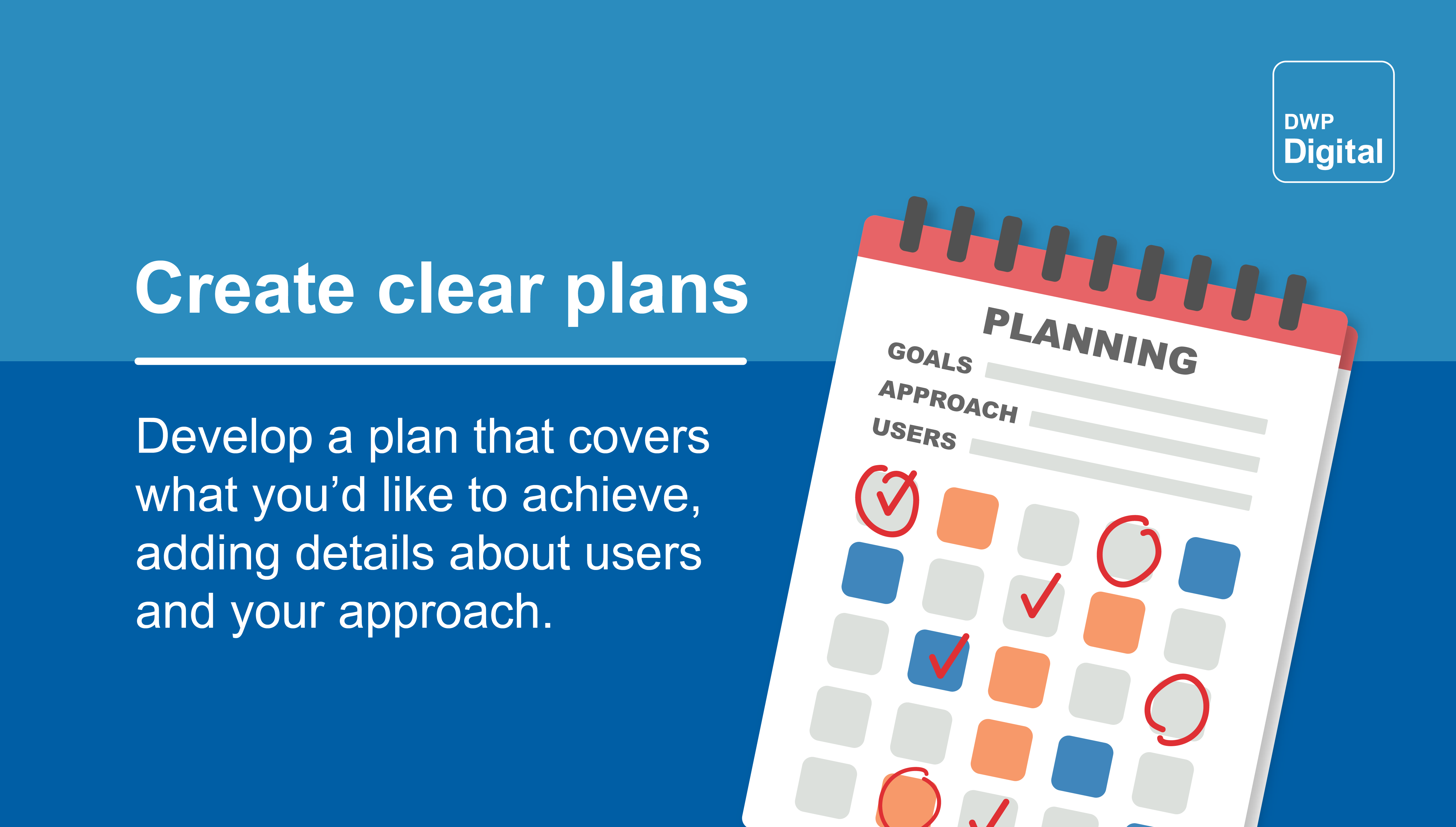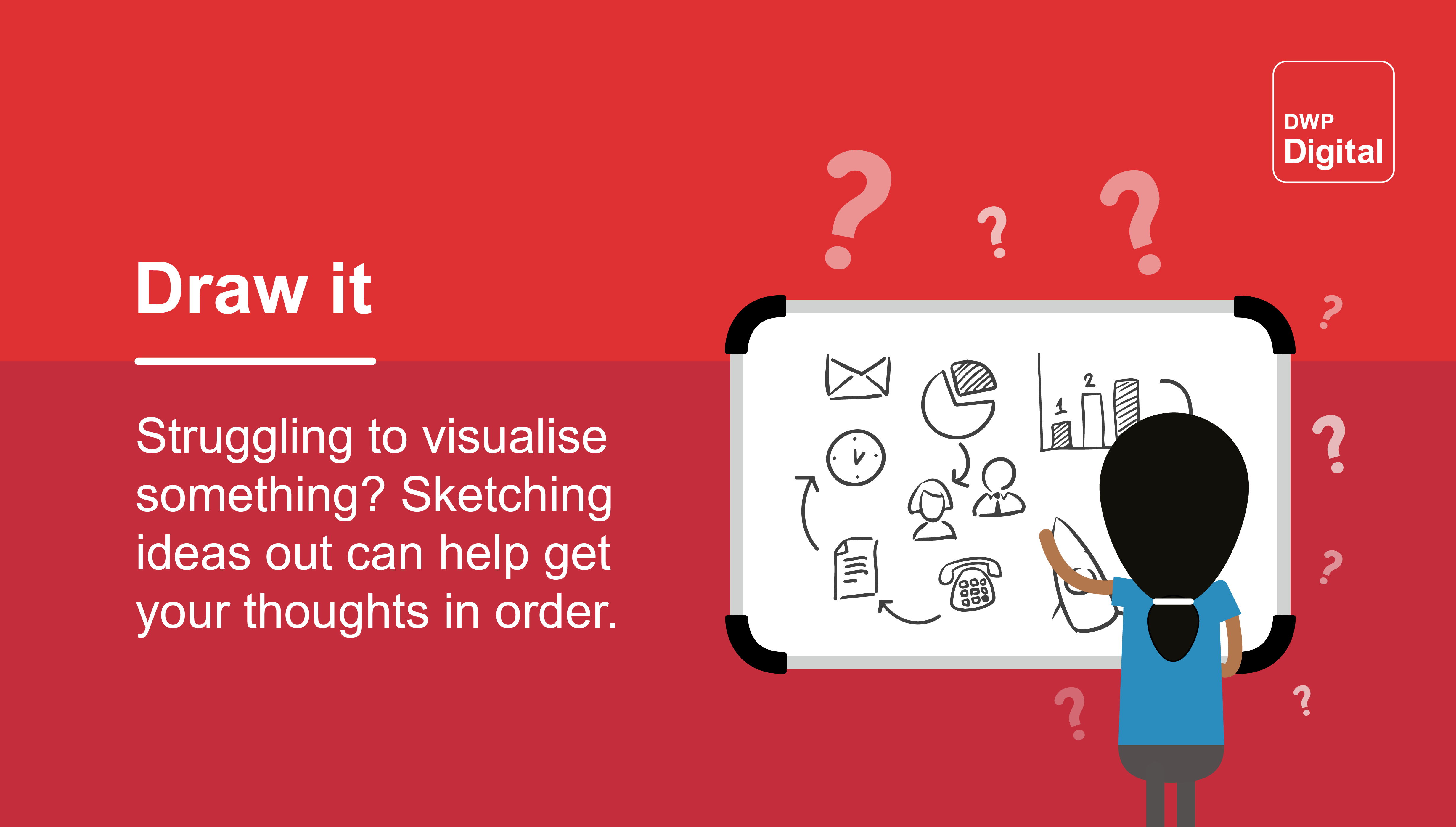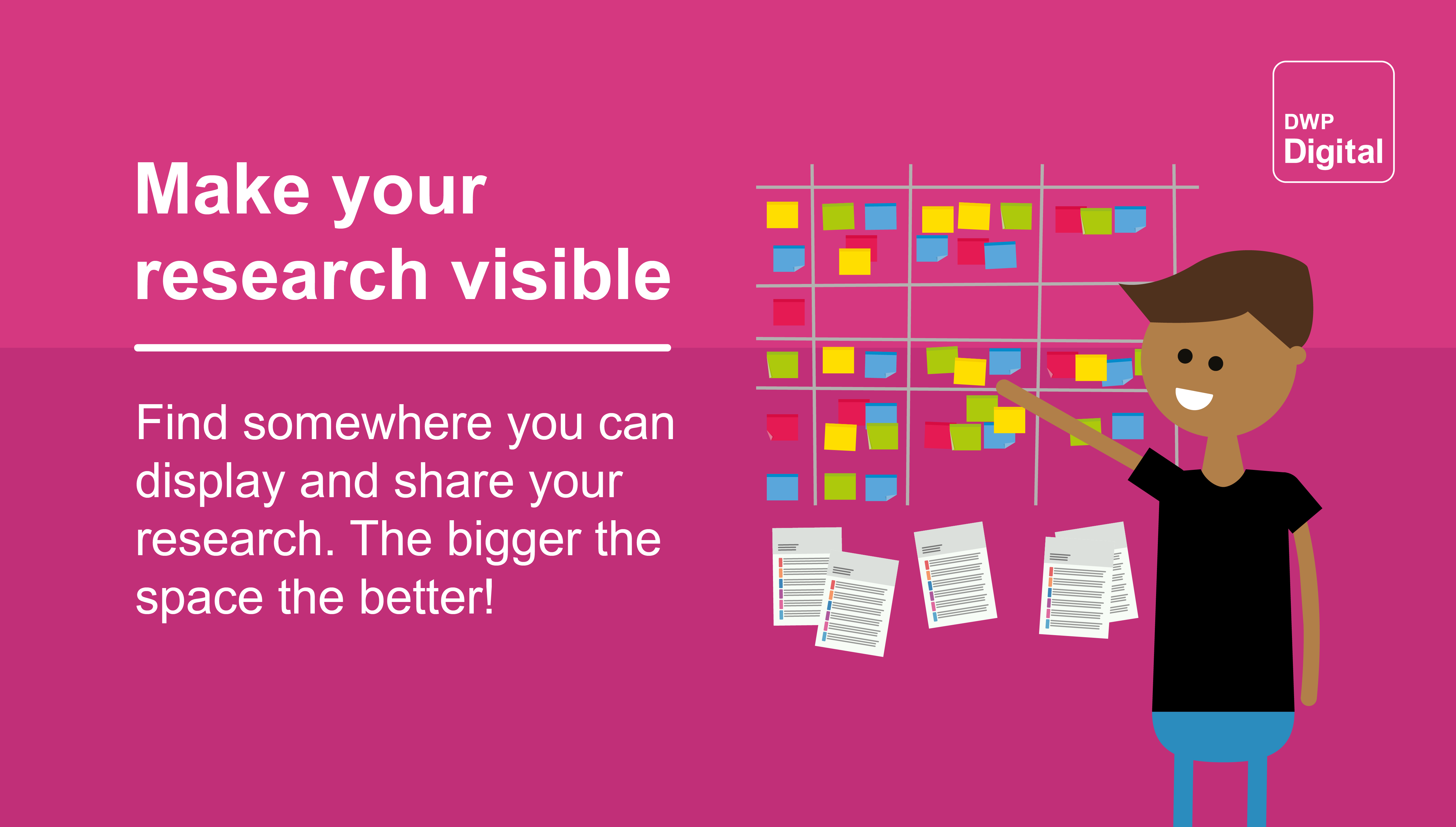
Chris Moffitt is relatively new to DWP Digital, having joined six months ago as a senior user researcher. With 19 years’ experience in HMRC, and a lot of knowledge on business processes, he was eager to get started in his new role and impress his new colleagues. But Chris says his first few days were challenging, as he had no experience of or knowledge about the department.
He shares his top tips for transferring your user research skill set to a new role:
1. Create clear plans
One of the first things I do when joining a project is to draft a research plan. This covers the things I’d like to do in the phase we are working in. So tip number one is plan.
I like to add specifics relating to the users and the approach I’ll take. This helps to feed into the creation of session plans and discussion guides.
It also helps me to break my research into bite size chunks and achievable goals as the project progresses.

2. Draw it
If I’m unsure about something, I find sketching helps me to get my thoughts in order. So tip number two is ‘draw it’.
Getting my ideas down on paper helps me to clarify and understand the process better. This works even more so in a discovery phase when I’m learning about the product I’ve just started working on. It also helps me to share and discuss my thoughts with others on the team.

3. Document your research
My third tip is to document the research that you’ve done. This helps me to create a story of the progress so far.
It also allows me to look back and reflect. I find that documenting research findings provides reference points that I can refer to if anyone has any questions. It also celebrates the good work I’ve done to date.
4. Make your research visible
I really like to find a nice big space to display and share my research related material. So tip number four is make your research visible.
When I’m talking about my research it helps to give it context, and having it readily available means little preparation is needed. I find it also helps readiness for any assessments.

5. Encourage debate
I share as much of my work as possible and encourage questions on my approach, so that’s my fifth tip.
Debate and questioning ensures everyone has a clear understanding of what is being planned, conducted, analysed and why. It keeps all interested parties on the same page.
6. Ask for help
Don’t be afraid to get advice, no matter how experienced you are. I like to get advice from others so that I can feed different opinions into my research plans.
Other opinions help me to decide what approaches to take and influences the creation of discussion guides. People I approach aren’t necessarily researchers and it’s good to get different viewpoints on my work, so for those reasons, tip number six is ‘ask others for help’.
7. Have confidence in your own ability
Take the time to revisit your past research. This will help you to reflect on the good work you’ve done and act as a refresher on approaches, plans, findings and outcomes.
It will also boost your confidence in what you are doing now. So my final tip is to be confident in your own abilities.
It’s okay to feel out of your comfort zone
There was a lot to take in when I moved from one government department to another, and the unfamiliarity left me feeling slightly uneasy. I wanted to know everything there and then, and I didn’t want to disappoint.
But by following these tips, I was able to deal with my unease, and make sure I provided value within the team.
No matter how much experience you have, it’s not always plain sailing! Remember you are always learning and, if you’re not, there’s no challenge and it can become boring.
For more tips and information about user research at DWP Digital, subscribe to our newsletter.





